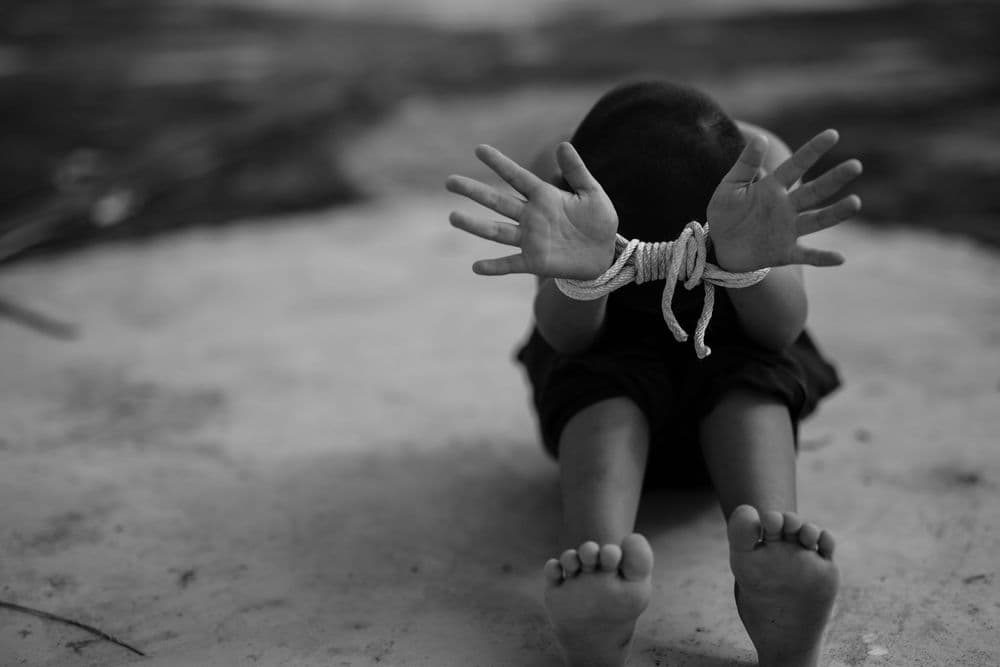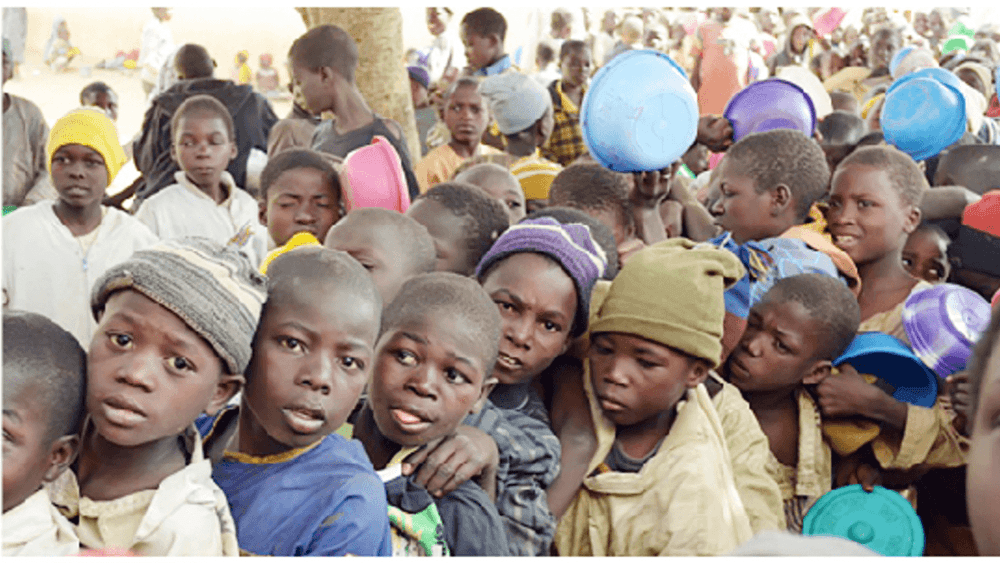Stay Informed
Join our newsletter to receive updates about our mission, impact stories, and ways you can help make a difference.

Across Africa, millions of children are growing up under the shadow of sexual violence and exploitation. Behind closed doors, in schools, in refugee camps, and increasingly across digital spaces, countless boys and girls face abuses that rob them of dignity, safety, and the promise of a better future.
The crisis is urgent — yet too often invisible. It demands not only compassion but also coordinated, sustained action from governments, communities, and international partners.
These indicators (especially Girl child under-age marriage) are key drivers and proxies for vulnerability to sexual exploitation.
Sources: UNICEF (When Numbers Demand Action, 2024), UNICEF child marriage country profiles, ChildFund/ACPF reports on online exploitation, and related regional policy briefs.
Country Estimated % girls married before 18
(women aged 20-24) Notes (vulnerability factors)
Niger 76% Very high child marriage prevalence; conflict/poverty-driven vulnerability.
Central African Republic 68% Very high child marriage prevalence; conflict/poverty-driven vulnerability.
Chad 67% Very high child marriage prevalence; conflict/poverty-driven vulnerability.
Mali 55% High prevalence; conflict and displacement increase risk.
Burkina Faso 52% High prevalence; conflict and displacement increase risk.
South Sudan 45% High prevalence; conflict and displacement increase risk.
Mozambique 48% High to moderate prevalence; regional disparities and online risks rising.
Nigeria 43% High to moderate prevalence; regional disparities and online risks rising.
South Africa 18% Lower child marriage rate but high reported sexual violence and online exploitation.
Figure: Estimated child marriage rates (illustrative) is selected for the most affected African countries.
Recent reports reveal staggering realities. According to UNICEF, more than 79 million girls and women in sub-Saharan Africa have been subjected to rape or sexual assault before turning 18. This figure likely underrepresents the true scale, as many cases go unreported due to fear, shame, or cultural taboos.
Online exploitation is growing even faster. ChildFund and its partners report a sharp increase in online sexual exploitation and abuse of children across Africa. In several countries, including Kenya, Uganda, and Mozambique, one in five children aged 9–17 have received unwanted sexual messages or requests for explicit content online.
Sexual exploitation does not occur in isolation. It thrives where protection systems are weak and children lack power or voice. Among the key drivers are:
Poverty and inequality: Families facing hardship may be unable to provide adequate supervision, and some children are coerced or lured with promises of money, food, or gifts.
Harmful social norms: In some communities, silence around sexual topics, obedience to elders, and practices like child marriage leave children defenseless.
Weak law enforcement: While many African countries have laws against sexual abuse, enforcement often falters due to corruption, lack of training, or limited resources.
Conflict and displacement: In humanitarian settings, children are more vulnerable to abuse by those in positions of power or by traffickers exploiting their desperation.
Digital vulnerability: With rising internet use and limited digital literacy, children are exposed to online predators and unregulated content.
The impact of molestation and sexual exploitation on a child can be lifelong. Survivors often face:
Physical trauma, including injury, sexually transmitted infections, and early or unwanted pregnancy.
Psychological distress, from fear and shame to chronic trauma, depression, and post-traumatic stress disorder.
Educational disruption, as many survivors drop out of school or struggle to concentrate due to emotional wounds.
Social exclusion, with survivors stigmatized or blamed instead of supported.
The damage extends beyond individuals — it undermines families, weakens communities, and slows national development.
Many African countries have made commendable progress by strengthening laws and ratifying regional frameworks such as the African Charter on the Rights and Welfare of the Child. Nations like Kenya, South Africa, and Nigeria have enacted comprehensive sexual offences laws that define and criminalize various forms of abuse.
However, the gap between policy and practice remains wide. Investigations are often delayed, cases collapse due to poor evidence, and survivors rarely receive justice or care. Reporting systems are fragmented, and protection services — where they exist — are underfunded or inaccessible.
Ending child molestation and sexual exploitation in Africa requires more than legal reform — it requires a shift in power, culture, and awareness.
1. Strengthen child protection systems: Governments must invest in social services, police training, and child-friendly courts.
2. Empower communities: Awareness programs can challenge stigma, promote dialogue, and encourage early reporting.
3. Expand survivor support: Access to counseling, healthcare, shelter, and education must be prioritized.
4. Promote digital safety: Schools and caregivers should teach children how to navigate the internet safely and report online threats.
5. Foster partnerships: Collaboration between governments, NGOs, faith-based organizations, and international bodies can amplify impact and ensure accountability.
A Shared Responsibility
Protecting Africa’s children is not only a moral duty, it’s a collective responsibility. Each child deserves to grow free from fear, to dream, and to thrive in safety. Silence enables abuse; awareness, advocacy, and action can end it.
Every effort from reporting a case, mentoring a child, supporting survivors, or shaping policy — moves us closer to a continent where childhood is sacred and exploitation has no place.
At Marianco, we believe every child deserves safety, dignity, and a future free from fear. Through our programs in advocacy, rescue, survivor care, and awareness, we are working tirelessly to end child molestation and sexual exploitation across Africa.
How to be a Change Agent:
• Report abuse when you see or suspect it — silence protects perpetrators.
• Support survivors through donations, volunteering, or mentorship.
• Raise awareness by sharing verified information and breaking harmful taboos.
Together, we can build communities that protect children, empower families, and hold abusers accountable.
Join the Marianco mission today — because every child deserves protection, and every voice counts.

Hotlines serve as a pivotal resource for individuals seeking immediate assistance across various sectors. Their effectiveness hinges on accessibility, trained personnel, and efficient call management systems

Treating adults like adults is a reasonable principle but not when the tool in question is a machine that can generate infinite child sexual abuse material on demand. OpenAI and every other AI company must understand: loosening restrictions on sexual content without ironclad safeguards is reckless.

the ethics surrounding the surveying of child abuse necessitate a careful balance between the need for data collection and the imperative of safeguarding vulnerable populations. Ethical considerations must prioritize the well-being of children, ensuring that their rights and dignity are upheld throughout the research process.

Combating child trafficking requires collective action. Organizations like ECPAT International, UNICEF, and the National Human Trafficking Hotline coordinate rescue efforts and survivor support across borders. Tech companies are implementing stronger safeguards, using machine learning to detect and remove exploitative content.

The intersection of technology and social justice has never been more critical. As AI continues to evolve, its capabilities in detecting and combating smuggling and human trafficking will further strengthen law enforcement and humanitarian efforts.

The Almajiri system began as a noble path of learning but has been weakened by neglect and lack of support. Today, millions of children suffer under conditions that deny them their rights and their futures


tackling child abuse in South Africa requires a multifaceted approach that involves individuals, families, communities, and the government. It calls for increased awareness, education, and active participation from all sectors of society.

The fight against child labor in Europe began in earnest during the 19th century. Social reformers, writers, and activists highlighted the plight of children working in hazardous conditions

Child sexual exploitation can be prevented through education, vigilance, and strong legal action. Key steps include teaching children body safety, monitoring online activity, reporting abuse, and supporting survivors. Community awareness and trained professionals are essential to detect and stop exploitation early.

Online gaming platforms have become a significant avenue for child sexual exploitation, with predators using in-game communication features, virtual gifts, and mentorship tactics to groom children in as little as 19 seconds, making parental awareness and active engagement in gaming crucial for protection.

Marianco is a non-profit organization dedicated to combating child trafficking, pedophilia, and exploitation. Inspired by Francisco Padilla, a former street orphan, Marianco provides comprehensive support to vulnerable children, including shelter, education, healthcare, and counseling. The organization aims to create a world where every child is safe and has the opportunity to reach their full potential. Child trafficking, pedophilia, and related forms of exploitation are pressing issues that strip millions of children of their rights, safety, and dignity. Marianco recognizes the urgency of addressing this crisis and is committed to disrupting cycles of exploitation by raising awareness, advocating for stricter laws, and creating prevention and rehabilitation programs. Their short-term goals include raising awareness, building partnerships, fundraising, developing rehabilitation centers, offering legal aid, and creating educational programs. Marianco is preparing to launch an advocacy campaign to educate communities about child trafficking and how to prevent it. With your support, Marianco can turn these plans into reality and create a world where children are safe, loved, and empowered.
Join our newsletter to receive updates about our mission, impact stories, and ways you can help make a difference.